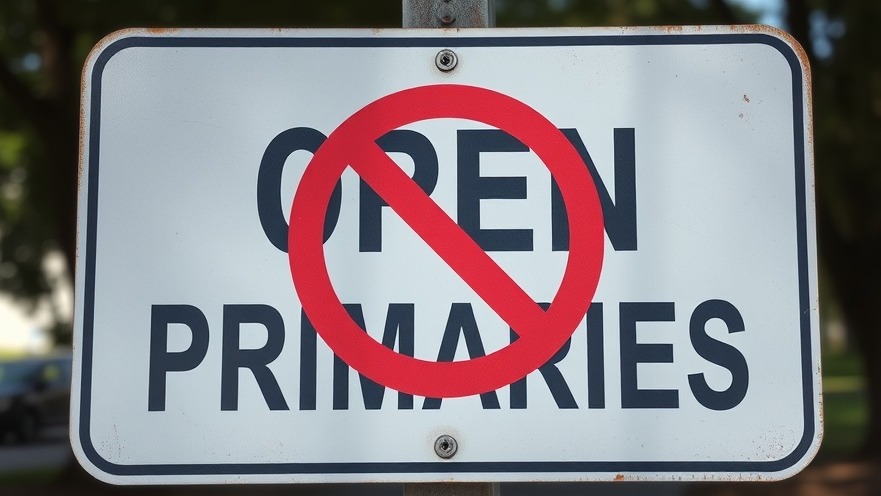
Texas GOP Takes a Bold Step to Close Primaries
The Republican Party of Texas is making headlines after filing a lawsuit against the state's Secretary of State, Jane Nelson, in a bid to restrict participation in GOP primary elections exclusively to registered party members. This decisive action underscores a broader trend within the party to enhance its control over candidate selection and leadership.
Understanding Open Primaries: A Texas Tradition
Texas has long been known for its open primary system, which allows any registered voter to participate in any party's primary election, irrespective of their party affiliation. This practice, while fostering inclusivity, has drawn criticism from party leaders who argue it undermines the primary process. The Texas GOP claims that open primaries enable crossover voting, where voters from other parties may influence the outcome, potentially leading to the nomination of more moderate candidates.
A Comparison to Other States
The movement to close primaries is not unique to Texas. Several states have already adopted closed or semi-closed primary systems, which restrict participation to registered party members. Notably, a federal court ruled in favor of the Idaho Republican Party in 2011, affirming their right to limit primary access. Currently, ten states operate closed primaries, reflecting a growing trend among political parties to safeguard their internal processes.
Legal Justifications and Constitutional Grounds
The Texas GOP's lawsuit rests on the assertion of First Amendment associational rights, arguing that, as a political party, they have the constitutional right to determine who participates in their candidate selection process. The lawsuit states, "The Party cannot continue to wait and risk further political inaction and delay that could lead to open primaries... in 2028 as well." This legal framing raises vital questions about individual voting rights versus party autonomy in determining electoral processes.
Pushing for Legislative Action
While the Texas GOP is pursuing legal avenues, they are also advocating for the state legislature to pass a law that would formalize the closed primary system. Leaders such as party chair Abraham George emphasize the necessity of this change to ensure that only Republicans can select Republican nominees. The recent primary races showed close outcomes, which the GOP argues could have different results under a closed primary system.
Implications for Future Elections
If successful, the lawsuit could dramatically reshape the landscape of Texas politics. The ability to restrict primary voting could change how candidates campaign, potentially leading to more conservative nominees in a state that has seen a shift towards more moderate candidates in recent years. As the 2024 elections approach, the outcome of this legal battle may have profound implications for Texas's political future.
Beyond the Lawsuit: The Broader Political Landscape
As discussions surrounding primary elections evolve, they reflect larger conversations about voter engagement and party identity. Critics of closed primaries often argue that they reduce voter turnout and stifle diverse perspectives within party politics. Voter engagement strategies must balance the desire for party control with the need to promote democratic participation in the electoral process.
This lawsuit marks a crucial point in Texas's political journey, emphasizing the ongoing struggle regarding party affiliation and primary election processes. As a politically diverse state, Texas will need to navigate these changes carefully to maintain its vibrant democracy.
 Add Element
Add Element  Add Row
Add Row 



Write A Comment